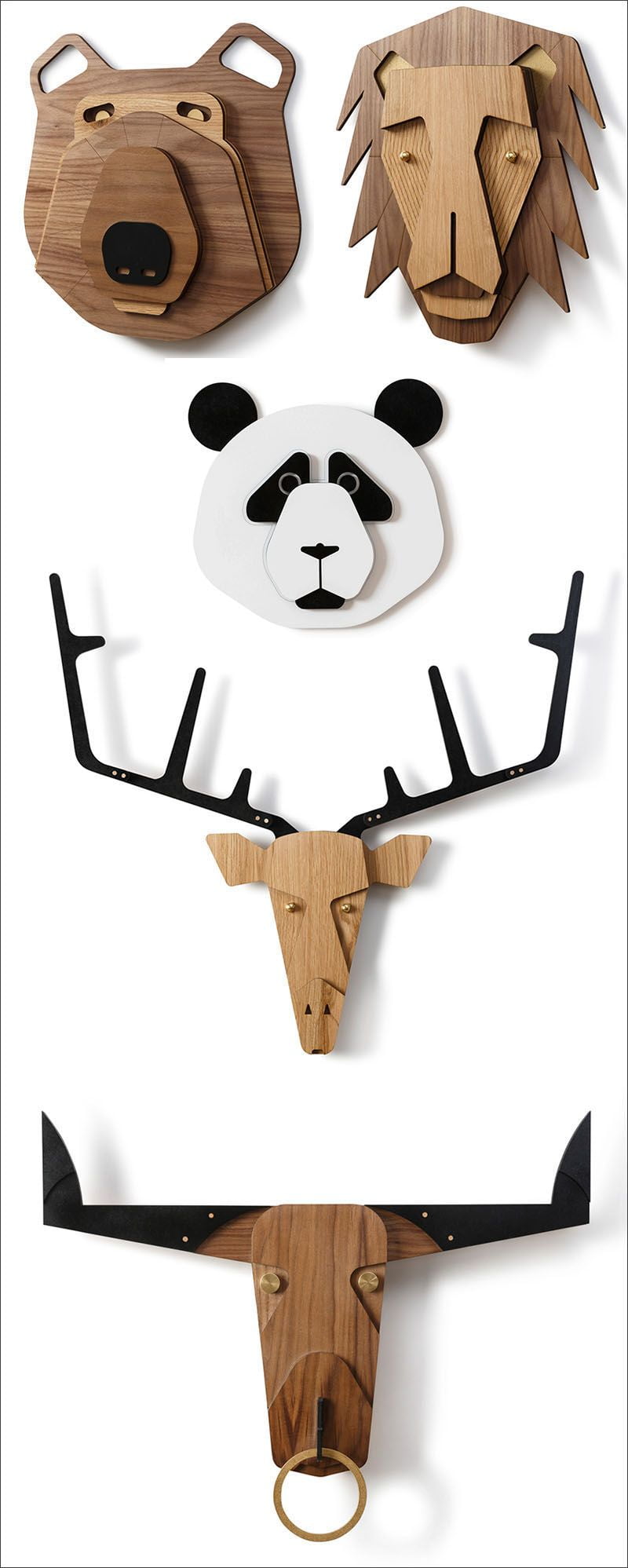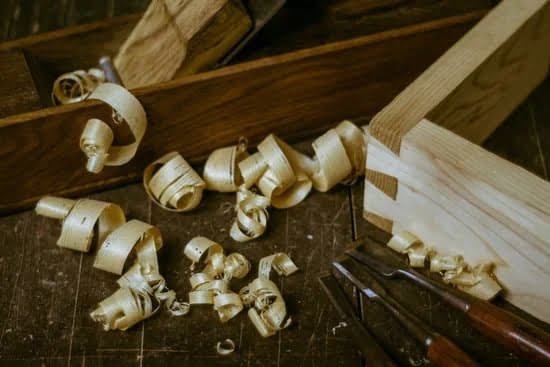Embarking on a journey in fine woodworking requires not just skill and creativity, but also the right set of tools. Whether you’re a seasoned craftsman or just starting out, having the essential tools at your disposal is crucial for creating masterpieces that truly stand out.
From measuring and marking tools to cutting-edge hand tools and power tools, each tool serves a specific purpose in the art of woodworking. In this article, we will explore the must-have tools that every fine woodworker should have in their arsenal, providing you with a comprehensive guide to success in your woodworking endeavors.
Precision is paramount in fine woodworking, and it all begins with accurate measurements and markings. The power of precision lies in the hands of measuring and marking tools such as rulers, tape measures, squares, levels, and bevel gauges. These tools ensure that each cut is precise and every joint is perfectly aligned, laying the foundation for impeccable craftsmanship.
Joinery and fastening are integral aspects of fine woodworking. To achieve secure connections between wooden pieces, certain must-have tools come into play. These include chisels for creating mortise-and-tenon joints, dovetail saws for precise dovetail joints, clamps for holding pieces together during assembly, hammers for driving nails into place, and screwdrivers for inserting screws securely.
As any woodworker can attest to, sculpting wood is an art form that demands exquisite handiwork. To achieve cutting edge excellence in shaping and carving wood, indispensable hand tools come into play. These can range from chisels of various sizes to carving knives and gouges. Each tool allows the artist to sculpt intricate details with precision and finesse.
The Power of Precision
In the world of fine woodworking, precision is key. Without accurate measurements and markings, even the most skilled craftsman can struggle to create flawless masterpieces. That’s why having the right measuring and marking tools is essential for any woodworker looking to take their skills to the next level.
One of the most basic yet essential measuring tools is a tape measure. A good quality tape measure should be durable, easy to read, and have both imperial and metric measurements. This allows woodworkers to accurately measure various dimensions while ensuring a seamless transition between units.
Another indispensable tool for precision in woodworking is a combination square. With its ability to measure both perpendicular angles and straight edges, it’s ideal for checking corners, marking guidelines, and verifying precise measurements. A combination square with a locking mechanism ensures that measurements are held securely in place.
Precision also comes in the form of marking tools such as pencils and knives. While any pencil can be used for marking measurements on wood, many woodworking enthusiasts prefer using mechanical pencils with fine leads or carpenter’s pencils with flat edges for more accurate lines. Additionally, having a marking knife or awl can be useful for scoring or scribing thin lines on the surface of the wood before cutting or joining pieces together.
| Tool | Description |
|---|---|
| Tape Measure | A flexible ruler used for measuring various dimensions. |
| Combination Square | A versatile tool that measures perpendicular angles and straight edges. |
| Pencil | An everyday writing instrument used for marking measurements on wood. |
| Marking Knife | A specialized tool used for scoring or scribing thin lines on wood. |
Nailing It
Joinery and fastening are essential aspects of fine woodworking, as they ensure the strength and durability of the final piece. To achieve flawless joinery and secure fastening, there are several must-have tools that every fine woodworker should have in their arsenal.
- Clamps: Clamps are indispensable tools for holding pieces of wood together during joinery or glue-ups. They come in a variety of types, including bar clamps, pipe clamps, and spring clamps. Having a selection of different sizes and types of clamps is crucial for ensuring a tight and secure fit.
- Doweling Jig: A doweling jig is a precision tool that helps create accurate and sturdy joints using dowels. It guides the drill bit into the correct position, ensuring precise alignment of the drill holes on both pieces of wood. With a doweling jig, you can create strong and seamless joints that add beauty and stability to your woodworking projects.
- Pocket Hole Jig: The pocket hole jig is a versatile tool for creating strong joints quickly and easily. It allows you to drill angled holes called pocket holes, which are then used to secure screws for joining two pieces of wood together. This method is ideal for carcass construction or when working with plywood or other materials where traditional joinery may be impractical.
In addition to these essential tools, there are also various fasteners that every fine woodworker should have in their workshop:
- Wood Screws: Wood screws are commonly used for securing joints in woodworking projects. They come in different lengths and gauges to accommodate various thicknesses of wood.
- Brad Nails: Brad nails are thin gauge nails that are used for delicate joinery work or attaching thin trim pieces.
- Biscuits: Biscuits are small, oval-shaped wooden pieces that fit into slots created with a biscuit joiner tool. They provide additional strength to joints by increasing surface area contact.
By having these must-have tools for joinery and fastening, you can ensure the strength, stability, and aesthetic appeal of your fine woodworking projects. Whether you’re creating intricate furniture pieces or simple wooden structures, investing in these tools will elevate your craftsmanship to the next level.
Cutting Edge Excellence
In fine woodworking, hand tools are essential for achieving exquisite details and creating intricate designs. These indispensable tools allow woodworkers to have full control over the sculpting process and bring their artistic visions to life. Whether you’re a beginner or an experienced woodworker, having the right hand tools can make all the difference in the outcome of your masterpiece.
One of the most versatile hand tools for sculpting wood is the chisel. Chisels come in various sizes and shapes, allowing woodworkers to make precise cuts and shape intricate details. Bevel-edged chisels are commonly used for paring and trimming, while mortise chisels are perfect for cutting clean and accurate joints. Additionally, skew chisels are excellent for carving curved surfaces and decorative elements.
Another indispensable hand tool for sculpting wood is the carving knife. Carving knives have a narrow, pointed blade that allows woodworkers to make delicate cuts and work on small-scale projects with ease. These knives come in different blade profiles, such as straight edge, hook blade, or chip blade, each serving different purposes in fine woodworking. Carving knives are ideal for shaping intricate patterns, detailing edges, and creating smooth curves.
Lastly, files and rasps are crucial hand tools for refining the shape and surface of wooden pieces in fine woodworking. Files have abrasive surfaces that can be flat or rounded, used to remove excess material or shape small areas precisely. Rasps have coarse teeth that effectively remove large amounts of material quickly. They are commonly used to shape rough surfaces or create unique textures on wooden sculptures.
| Hand Tool | Description |
|---|---|
| Chisel | A versatile tool with various sizes and shapes, used for making precise cuts and shaping intricate details. |
| Carving Knife | A narrow, pointed blade tool ideal for making delicate cuts, shaping intricate patterns, and detailing edges. |
| Files and Rasps | Tools with abrasive surfaces that are used to refine the shape of wooden pieces and create unique textures. |
By having these indispensable hand tools in your arsenal, you’ll be able to sculpt wood with precision and achieve cutting edge excellence in your fine woodworking projects. Remember to choose high-quality tools that are comfortable to hold and maintain their sharpness for long-lasting use. With practice and the right tools at hand, you’ll be able to unleash your creativity and bring out the beauty in every piece of wood you work with.
Slicing with Style
Achieving flawless surface finishes is a crucial aspect of fine woodworking, as it not only enhances the aesthetic appeal of the final piece but also adds to its overall value. To achieve this level of perfection, fine woodworkers rely on a variety of key tools that help them slice with style and create impeccable finishes.
One essential tool for achieving flawless surface finishes is a high-quality hand plane. Hand planes are versatile tools that allow woodworkers to smooth out rough surfaces, flatten uneven edges, and remove any imperfections in the wood. They come in various sizes and shapes to accommodate different woodworking needs. Some popular types of hand planes include block planes, smoothing planes, and shoulder planes.
In addition to hand planes, sanding tools are also indispensable for achieving flawless surface finishes. Sandpaper comes in different grits, allowing woodworkers to gradually remove scratches and imperfections from the wood’s surface. Power sanders such as orbital sanders or belt sanders can be used for larger projects or to speed up the sanding process.
Another key tool for achieving flawless finishes is a scraper. Scrapers are handheld tools with a thin metal blade that is used to remove thin shavings from the wood’s surface. They are particularly useful for smoothing out irregularities and creating a glass-like finish on flat surfaces.
To summarize:
- Hand planes: Essential for smoothing rough surfaces and removing imperfections.
- Sanding tools: Including various grits of sandpaper and power sanders.
- Scrapers: Used for creating a smooth finish by shaving off thin layers of wood.
By using these key tools for achieving flawless surface finishes in fine woodworking, craftsmen can add an extra layer of professionalism and beauty to their creations while ensuring the highest quality end product possible.
The Backbone of Craftsmanship
As any fine woodworker knows, having the right power tools can greatly enhance efficiency and precision in their craft. Power tools not only help to speed up the woodworking process, but they also enable woodworkers to take on larger and more complex projects. In this section, we will explore some essential power tools that are considered the backbone of craftsmanship in fine woodworking.
One indispensable power tool for fine woodworking is the table saw. A high-quality table saw allows woodworkers to make precise cuts with ease and accuracy. With a variety of blade options and adjustable settings, a table saw is versatile enough to handle crosscuts, rip cuts, miter cuts, and bevel cuts. Whether it’s cutting large sheets of plywood or creating intricate joinery, a table saw is an essential power tool that every fine woodworker should have in their workshop.
Another essential power tool is the router. A router is a versatile tool that can shape edges, cut grooves, create decorative profiles, and even make mortises. With different bits available for various operations, a router allows woodworkers to achieve precise and detailed work on their projects. Additionally, routers can be handheld or mounted on a router table for increased stability and control.
A third vital power tool for efficient fine woodworking is the planer. A planer is used to smooth out rough surfaces and precisely thickness boards. It helps ensure uniformity in thickness throughout a piece of wood, making it easier to join pieces together seamlessly. By eliminating imperfections and excess material from rough lumber, a planer helps create flat surfaces that are ready for further shaping and finishing.
Safety First
Safety should always be the top priority in any woodworking project. When working with sharp tools and heavy machinery, it is essential to have the proper safety equipment to protect yourself from accidents and injuries. Here are some must-have safety equipment items that every fine woodworker should have in their workshop.
Firstly, one of the most important pieces of safety equipment is eye protection. Flying wood chips and debris can easily cause damage to your eyes, so wearing safety glasses or goggles is crucial. Make sure that they fit securely and provide adequate coverage to protect your eyes from all angles.
Secondly, hearing protection is another essential item for a safe woodworking environment. Operating power tools and machinery can generate a lot of noise which can be harmful to your ears over time. Invest in a good pair of ear muffs or earplugs to protect your hearing while working in the workshop.
Additionally, respiratory protection is vital when working with wood dust and other airborne particles. Fine woodworking often involves sanding, cutting, and shaping wood, which can produce a significant amount of dust that could be harmful if inhaled. A respirator mask designed for woodworking will filter out these particles and protect your lungs.
Furthermore, a fire extinguisher is a critical safety item that should always be within reach in case of emergencies. Since woodworking involves working with flammable materials such as sawdust, it’s important to have an appropriate fire extinguisher nearby in case of accidental fires. Ensure that you are trained on how to use it effectively.
Lastly, having a first aid kit readily available in your workshop is essential for addressing minor injuries or accidents quickly. The kit should include items such as bandages, antiseptic ointment, adhesive tape, scissors, and other necessary supplies for treating wounds.
By investing in high-quality safety equipment and consistently using it while working on fine woodworking projects, you can create a secure woodworking environment for yourself. Remember that prevention is always better than cure, so make sure to prioritize your safety and well-being in your woodworking endeavors.
Going the Extra Mile
Enhancing Precision and Accuracy
While the essential tools mentioned earlier are crucial for fine woodworking, there are additional accessories and gadgets that can further enhance precision and accuracy in your craft. One such accessory is a digital angle gauge, which allows you to measure angles with greater accuracy than traditional protractors. This tool is particularly useful when working on intricate joinery or complex angles.
Another accessory that can take your woodworking to the next level is a dial caliper. With its ability to measure small distances with exceptional precision, it becomes invaluable when working with fine details or when achieving precise fits for joints and components. Investing in a quality dial caliper will ensure that you always have accurate measurements at your fingertips.
Elevating Efficiency and Convenience
In addition to precision-enhancing tools, there are also accessories that can improve efficiency and convenience in your woodworking projects. One such gadget is a magnetic featherboard, which helps hold workpieces firmly against a fence or table while preventing kickback. This accessory adds an extra layer of safety and stability to your cutting operations, allowing you to work more confidently and efficiently.
For those who frequently work with different sizes of fasteners, investing in a quick-change chuck attachment for your drill can significantly streamline your workflow. This attachment allows you to switch between drill bits and screwdriver bits seamlessly, eliminating the time-consuming process of manually changing bits.
Creative Enhancements
If you’re looking to add unique decorative touches to your woodworking projects, there are additional accessories that can assist in achieving creative enhancements. A rotary carving tool is one such gadget that enables you to carve intricate designs into wood surfaces with ease. Whether it’s adding ornate patterns or creating beautiful textures, this tool opens up endless possibilities for artistic expression within your woodworking projects.
Moreover, if you enjoy experimenting with different finishes on your woodwork, investing in a quality spray gun can be a game-changer. This accessory allows for even and controlled application of paints, stains, and varnishes, resulting in flawlessly finished surfaces. The ability to achieve professional-grade finishes will undoubtedly elevate the overall quality and aesthetic appeal of your fine woodworking creations.
By going the extra mile and investing in these additional accessories and gadgets, you can enhance precision, efficiency, convenience, and creativity in your fine woodworking projects. These tools not only expand your capabilities but also add a personal touch to your craft, enabling you to truly unleash your inner craftsman.
The Fine Woodworker’s Toolbox
Investing in High-Quality Tool Storage
One of the most important aspects of a fine woodworking workshop is having proper storage for all of your tools. Investing in high-quality tool storage solutions not only helps keep your workshop organized, but also ensures that your tools are protected and easily accessible when you need them. When choosing tool storage options, look for sturdy cabinets, chests, or wall-mounted systems that have ample space to accommodate various sizes of tools.
Consider features such as locking mechanisms to keep your tools secure, adjustable shelving to customize storage space, and drawers with dividers to keep small items organized. By investing in high-quality tool storage, you’ll save time searching for tools and increase your overall productivity in the workshop.
Organizing Tools by Type and Function
To further enhance the efficiency of your woodworking workshop, it’s essential to have a system for organizing your tools based on their type and function. This will not only make it easier to find specific tools when needed but also ensures that they are stored and maintained properly.
One effective method is to divide your tools into different categories such as measuring and marking tools, cutting tools, fastening tools, etc. Within each category, further subdivide based on the specific functions or sizes of the tools.
For example, within the cutting tool category, you may have separate sections for handsaws, chisels, and carving knives. Use labeled drawers or compartments within your tool storage system so that each tool has its designated place. By adopting an organizational system for your tools, you’ll greatly reduce clutter in your workspace and increase overall efficiency.
Creating Dedicated Workstations
In addition to proper tool storage and organization, creating dedicated workstations can significantly improve efficiency in a woodworking workshop. Depending on the size of your workspace and the types of projects you work on most frequently, consider setting up separate areas for tasks such as measuring and marking, cutting and shaping, assembly, and finishing. Each station should be equipped with the necessary tools and equipment needed for that specific task.
For example, the cutting and shaping station can have a bench with a vice, a variety of saws and chisels, and a sharpening station. Having dedicated workstations not only keeps your tools within easy reach but also minimizes the time spent moving between different areas of the workshop. This setup promotes an organized workflow, allowing you to focus on your craft without unnecessary distractions or interruptions.
With an efficient storage and organization system in place, you’ll be able to establish a well-structured woodworking workshop that allows you to maximize productivity and creativity. By investing in high-quality tool storage options, organizing tools by type and function, and creating dedicated workstations, you’ll have all the essential solutions for an efficient workshop at your fingertips.
With everything in its proper place, you’ll spend less time searching for tools and more time fine-tuning your woodworking skills to create beautiful masterpieces.
Conclusion
In conclusion, fine woodworking requires a precise and meticulous approach, and having the right tools is essential to achieve masterful results. Throughout this article, we have explored the various categories of tools necessary for fine woodworking. From measuring and marking tools to joinery and fastening tools, hand tools for sculpting wood, surface finish tools, power tools, safety equipment, additional accessories and gadgets, as well as storage and organization solutions – each category plays a vital role in the craft.
By investing in these must-have tools, you can unleash your inner craftsman and elevate your woodworking projects to new heights. With precise measuring and marking tools, you can ensure accuracy and consistency in your designs. Nailing it with must-have joinery and fastening tools will enhance the strength and durability of your creations. Indispensable hand tools for shaping wood provide you with the ability to transform raw materials into works of art.
Achieving flawless surface finishes is made possible with key slicing tools designed specifically for fine woodworking. Essential power tools offer efficiency in cutting and shaping wood, allowing you to bring your ideas to life more effectively. Safety equipment ensures a secure environment while working with potentially dangerous tools.
In addition to these necessities, there are numerous accessories and gadgets available that can further enhance your woodworking experience. Lastly, an organized workshop with proper storage solutions will not only increase productivity but also protect your valuable investment in high-quality woodworking instruments.
So go ahead and embrace your passion for fine woodworking by equipping yourself with these must-have tools. Unleash your creativity, refine your skills, and create timeless pieces that will be cherished for generations to come. Remember that practice makes perfect when it comes to craftsmanship – so roll up your sleeves, get familiar with your toolkit, and let the beauty of fine woodworking unfold before you.
Frequently Asked Questions
What is the most important tool in a woodshop?
The most important tool in a woodshop is the table saw. This versatile and powerful machine allows woodworkers to make precision cuts, rip boards into different widths, and even create intricate joinery.
Its ability to accurately cut through various types of wood makes it an indispensable tool for any woodworking project. With safety precautions in place, such as using push sticks and wearing protective gear, a table saw can greatly enhance productivity and efficiency in a woodshop.
What is an essential tool for a woodworker?
An essential tool for a woodworker is the chisel. Chisels come in various sizes and shapes, allowing woodworkers to carefully carve out intricate details and create clean, precise cuts.
Whether it’s shaping chamfers, mortises, or carving ornamental designs, chisels offer control and precision that power tools often struggle to achieve. They are indispensable when it comes to fine woodworking tasks such as fitting joints together or adding decorative elements to furniture pieces.
What tools are needed for small wood projects?
For small wood projects, several tools will be needed depending on the specific task at hand. A tape measure or ruler is crucial for measuring dimensions accurately to ensure pieces fit together correctly. A miter saw or a handheld circular saw can be used for making straight crosscuts or mitered cuts on smaller wooden boards. Clamps are essential for holding pieces securely while gluing or joining them together, ensuring precise alignment during assembly.
Sandpaper of varying grits helps achieve smooth surfaces before applying finishes or painting. Finally, having a good set of screwdrivers and a hammer allows for final touches such as attaching hinges or driving nails if needed in the project. These tools form the foundation for tackling small woodworking projects effectively and efficiently while producing quality results.

Hi everyone! I’m a woodworker and blogger, and this is my woodworking blog. In my blog, I share tips and tricks for woodworkers of all skill levels, as well as project ideas that you can try yourself.





